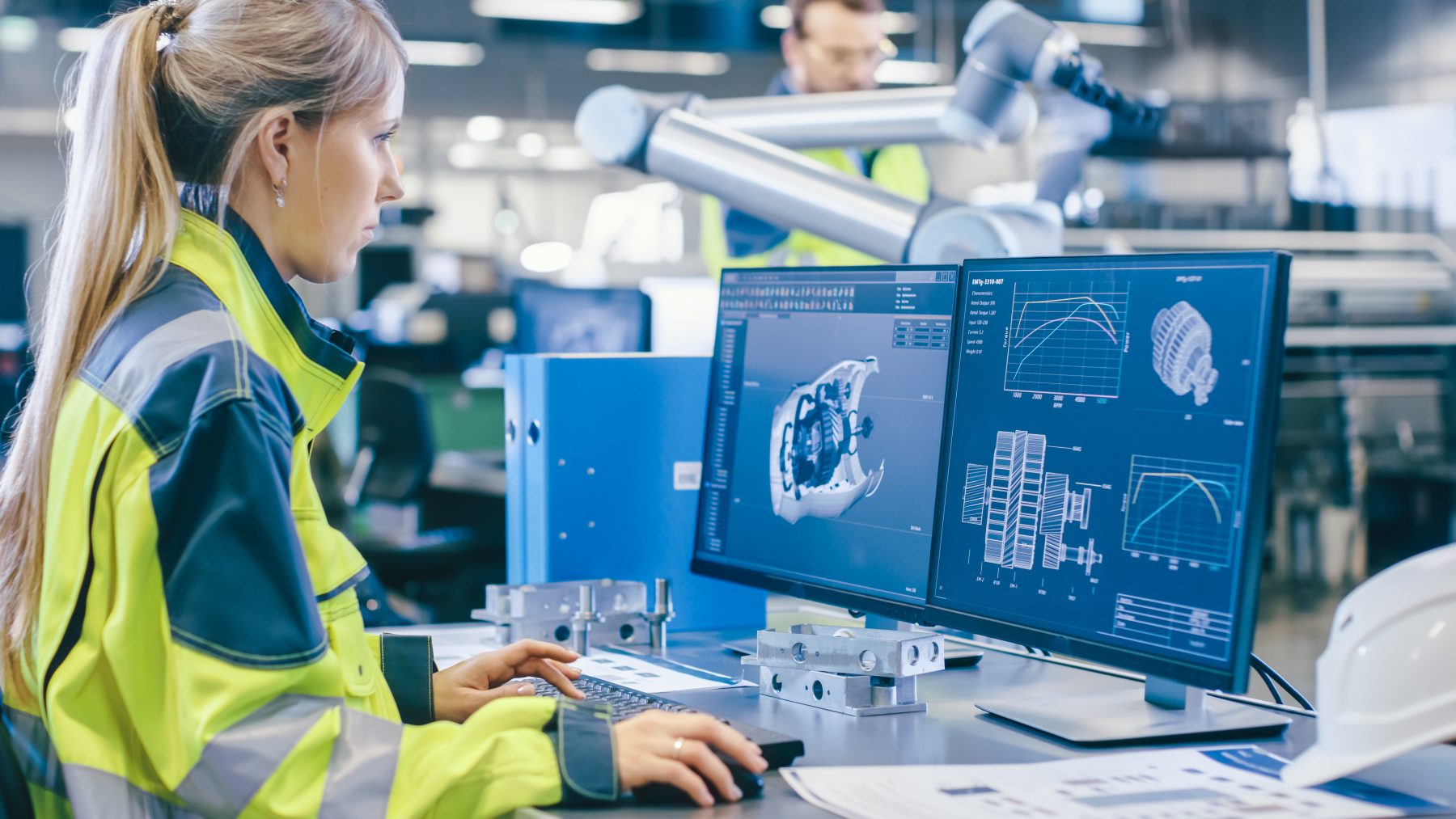June 2022
A paper from Princeton’s Stephen Redding, Xiang Ding (Georgetown), Teresa C. Fort (Dartmouth), and Peter K. Schott (Yale) shows that manufacturing firms have played a much larger role in the transition of the U.S. economy toward service and knowledge-related industries than previously understood.
By developing new, in-house tools and technologies to produce their final products, U.S. manufacturing firms have not only made significant structural changes to their business activities over the last 40 years, but have also grown and pivoted to new industries, thereby transforming the entire sector.
New facts about U.S. manufacturing employment
Though past research has documented a severe and steady decline in the share of U.S. jobs held by the manufacturing sector over the last several decades, the researchers say those statistics obscure the fact that manufacturing companies are creating non-manufacturing jobs.
Over the last 40 years, U.S. manufacturing firms accounted for a substantial and disproportionate share of aggregate non-manufacturing employment and payroll growth. From 1977-2019, manufacturing firms accounted for 16-32% of the rise in aggregate non-manufacturing employment.
The growth is even larger when measured by payroll. Manufacturing firms accounted for 25-40% of non-manufacturing payroll growth from 1977-2019, with non-manufacturing firms accounting for the remainder.
The researchers highlight several facts about these striking findings:
- Over the last 40 years, the growth in non-manufacturing activity of manufacturing firms was overwhelmingly driven by “continuing” firms–or firms that were established by 1977 and still existed in 2019. Less than 1% of all firms in their data are continuing manufacturing firms, but they account for 15-26% of non-manufacturing employment growth.
- Growth was largest in three types of business services that serve as production inputs rather than final goods: computer systems design, R&D, and architectural and engineering services.
- Input services accounted for 44% of non-manufacturing employment growth and 54% of payroll growth. The researchers argue this is further evidence that U.S. aggregate employment is moving towards services, especially those classified as Professional, Scientific, and Technical Services (PSTS).
These findings are made possible by a new dataset, compiled by the authors, that tracks business activity from 1977 to 2019 at the “establishment-level”–meaning the researchers are able to track business activity at every location of a U.S. manufacturing firm, including “auxiliary” establishments like warehouses or R&D labs.
Firm growth and pivoting: The role of auxiliary establishments
Focusing on the auxiliary establishments of firms, namely those establishments that provide in-house services for their firm, the researchers find:
- After controlling for overall firm size, auxilliary establishments are typically smaller than other establishments of the same firm.
- Compared to plants in the same industry, auxiliary establishments employ higher-skilled workers.
- Firms with auxiliaries are rare–less than 1% of firms in the sample period–but are substantially larger, older, and have more establishments than firms without auxiliaries.
Despite the rarity of auxilliary establishments, they play an important role in helping manufacturing firms grow and pivot. The researchers find that firms grow and pivot faster as the share of a firm’s employment at auxiliary establishments grows.
To complete their analysis, the researchers build a model that produces several predictions about structural transformation within and across the manufacturing sector. They then provide empirical evidence in support of those predictions by using data on the substantial growth of Chinese exports from 1997 to 2007 (often called the “China shock”). In doing so, they present strong evidence that, by performing knowledge services in-house, manufacturing firms develop “proprietary intangible capital” that often gives them a competitive edge and helps protect them from shocks and pivot toward services.
“While greater import competition in output markets leads to the conventional contraction of firm employment, increased import competition in firms’ input markets induces structural transformation within firms from production to knowledge services,” the researchers write. “Moreover, we find that firms with in-house knowledge workers, as measured by auxiliary establishments, are more responsive to these output and input market shocks.”
To learn more, download the full paper.
